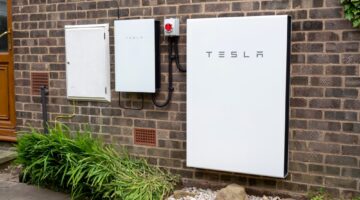
From the start of this month, Help-to-Buy mortgages in Wales will be calculated taking into account the projected energy bills of the property.
What is the new policy?
The central idea behind the policy is that larger loans will be offset by lower projected energy bills. The policy will affect first time buyers taking advantage of the Help-to-Buy top up mortgages, with a potential £11,500 additional loan amount for the most energy efficient properties.
The policy comes following research by the LENDERS partnership and Building Research Establishment (BRE) which indicated that projected household energy costs could be used to more accurately assess mortgage affordability. From an economic point of view it makes perfect sense; bigger mortgages are awarded to those with lower bills and therefore more cash left over to pay back the mortgage.
From the perspective of the Welsh, it’s a way to encourage more young families to move to the country, as well as promoting a more energy efficient nation with a knock-on positive effect on the economy. Rebecca Evans, Wales minister for housing and regeneration, addressed the matter, saying “We know that energy spending can be a major household outgoing, which is why we want to make energy efficiency part of the consideration when people look to buy a home in Wales.
Are mortgages based on energy efficiency a good idea?
We think so. See, the problem with a lot of government schemes is that they require you to have a ton of disposable income to start with, even if you’ll eventually be paid back. This means that the people who really need lower bills are often the ones unable to afford the upfront costs of improving their efficiency.
For example, a ground source heat pump is one of the most energy efficient installations currently around. The initial cost (including equipment and installation work) can be anywhere from around £25,000 upwards, however, due to the Renewable Heat Incentive, over the course of 7 years around £30,000 could potentially be recouped on it. That means that on top of all the money you’d be saving on bills, you could also actually be making back more than the pump installation even cost you in the first place. The only problem in this fairly lucrative scheme is that hefty upfront cost. For the most part, people with £25,000 disposable income are not the same people that need to be overly worried about their bills. As the age old saying goes – you gotta have money to make money.
In contrast, adjusting mortgages to award bigger loans based on energy efficiency will allow lower income families and individuals to move into homes already kitted out with the kind of high cost energy saving tech that would otherwise place the property out of their budget. This means significant long-term savings to those that need it. Hooray!
Will the rest of the UK follow suit?
Wales is the first UK country to instigate this policy, but there have been mutterings about similar schemes for a while. While awarding mortgages based on energy efficiency is certainly a big step forward, other suggestions have included council tax based on EPC ratings. For now, we’ll take Wales as a solid starting point.
Think we missed something? Do you have a different opinion?
Comment below to get your voice heard…













No Comments yet! Be the first one.